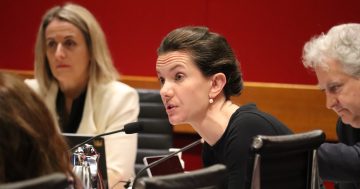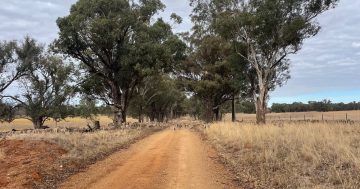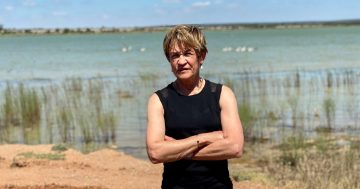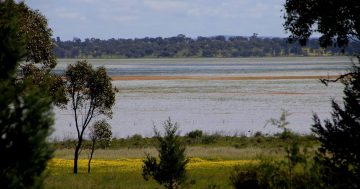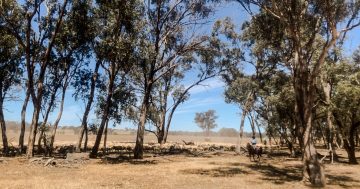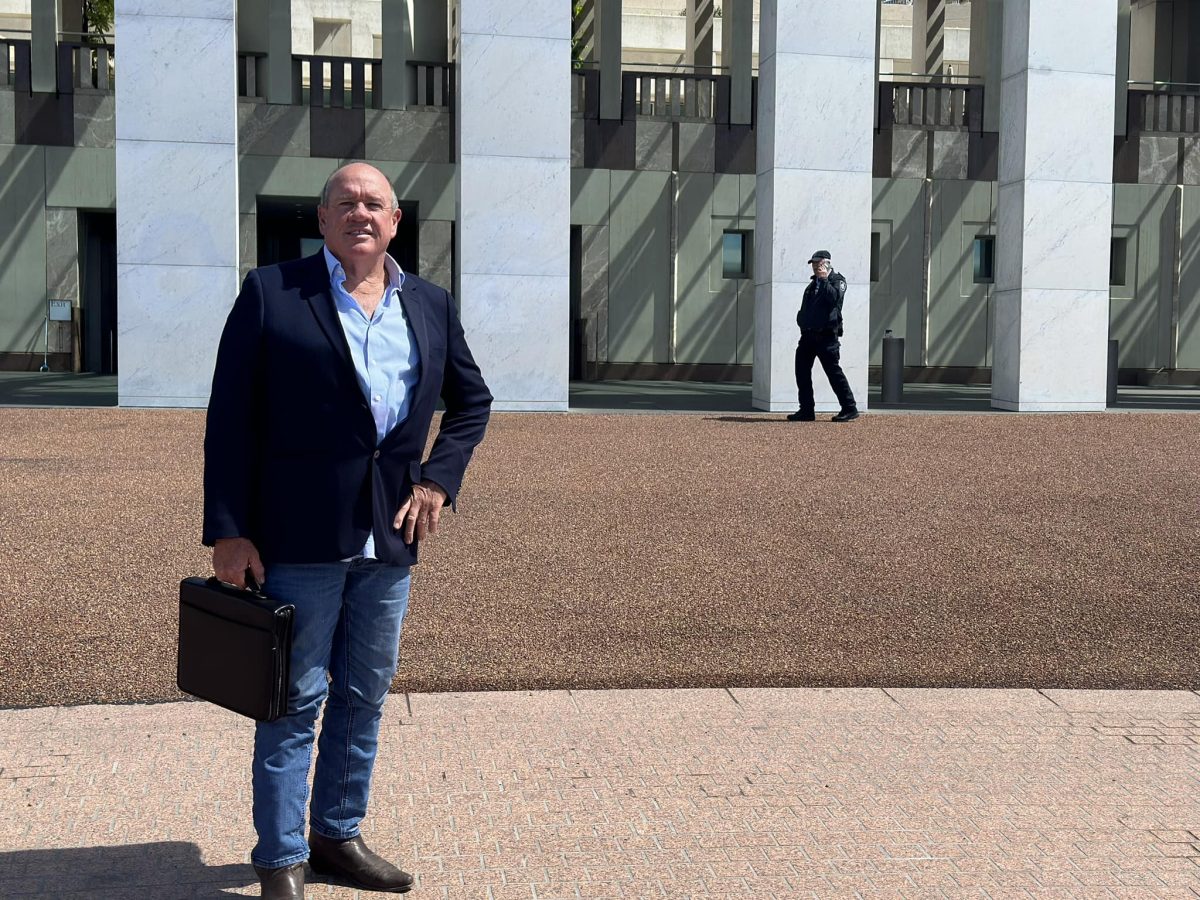
Farmer Chris Brooks has challenged MIL’s claims and called for the water delivery company to provide transparency. Photo: Southern Riverina Irrigators/Facebook.
Embattled water delivery company Murray Irrigation Limited (MIL) has hit back at media reports suggesting it withheld water from desperate farmers during the 2018-19 drought.
In its February 2024 ‘Talking Water’ newsletter, the company claimed recent articles by worldwide business news network Bloomberg and Region were “incorrect”, “one-sided”, “uninformed” and that they included “malicious” allegations.
However, those reporting on the company have stood by their assertions, while MIL has not provided evidence on how it managed vast amounts of water during successive dry years when its farmers were given no water allocation.
In December 2023, Bloomberg reported on the findings of an independent report that alleged MIL held on to enough water “to fill 64,000 Olympic-sized swimming pools” during the drought, suggesting this water could have instead been provided to farmers struggling to save their crops.
MIL chief executive officer Ron McCalman announced his resignation just days before this article was published, though he told Bloomberg this decision was not related to its reporting as he wasn’t CEO of Murray Irrigation during those drought years.
This capped off a tumultuous period for MIL – an annual general meeting in November 2023 saw the company fight off a shareholder push to oust two directors, while the company has been engaged in an ugly public spat with Southern Riverina Irrigators (SRI), an advocacy group that represents MIL farmers.
Further pressure mounted on MIL in the new year, when NSW Greens MP Cate Faehrmann wrote to NSW Water Minister Rose Jackson requesting an investigation into MIL’s handling of its ‘carryover’ water – unused water allocation transferred to the next irrigation season.
In its newsletter, MIL stated that it “vehemently denies any malicious allegations around licence management and wishes to clarify the following information: MIL did not lease water during these years; MIL did not carry over water for third parties during these years; and MIL distributes all the water available on the water access licence to our customers.”
MIL is the largest private water supply network in Australia, supplying water to about 2100 properties. Its alleged carryover water discrepancies were detailed in an independent report by water expert Maryanne Slattery, who was commissioned by local farmers to investigate why the water provider had been routinely late in delivering vital water to them.
She allegedly found unusually high amounts of water were held within MIL’s own company account and were carried over into the next season rather than distributed to struggling farmers.
“We stand by our report,” Ms Slattery said.
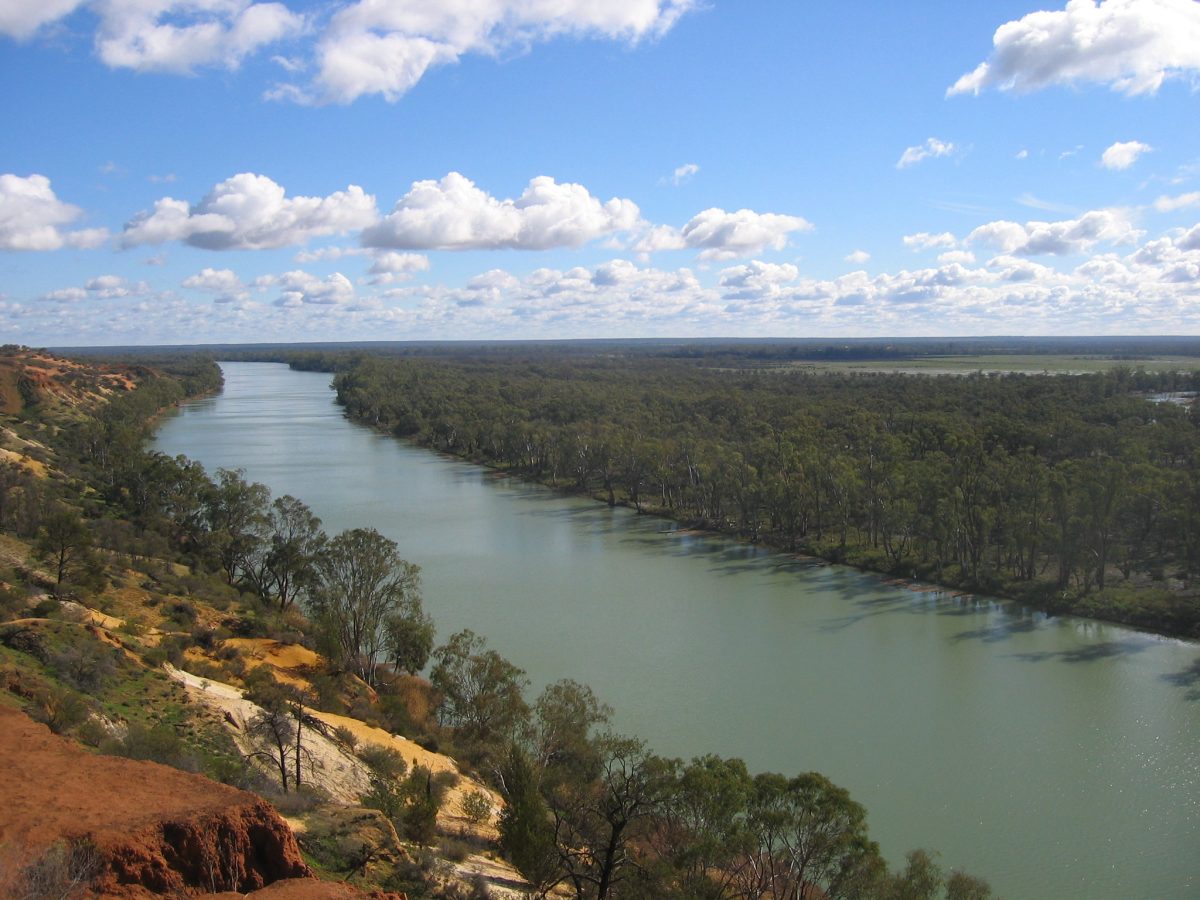
Murray Irrigation has defended how it managed Murray River water during the drought. Photo: Andrew Evans/Flickr.
Bloomberg News also defended itself after MIL’s attack on its journalism, with a spokesperson telling Region: “We stand by our reporting.” It’s understood four experienced journalists spent several weeks researching the article MIL criticised.
When asked by media about its water handling during the drought, MIL claimed it did not even have a company account and that decisions on carrying over water were made by individual customers.
SRI chairman Chris Brooks said this was an “absolute lie”.
“They are hiding behind a lie to say farmers made this decision,” he said. “In a drought year, no farmer is carrying over any water. We are using every drop … MIL made the decision to carry over water from their conveyance licence.”
Mr Brooks said shareholders were “at war” with MIL management, who were “evasive” when he asked them to explain their carryover water decisions. He said he wanted more transparency from the company.
In its recent inquiry into water markets, the Australian Competition and Consumer Commission (ACCC) said it heard from many farmers concerned about the lack of regulation and transparency over irrigation infrastructure operators (IIOs) such as MIL.
Ms Slattery says this is “a huge issue for water markets and irrigation”.
“Murray Irrigation holds 60 per cent of all the general security water and nobody can see inside it,” she said. “Even governments and MIL shareholders can’t see inside MIL. There needs to be transparency for anyone to have confidence in the market.”
When asked by Region to provide evidence on how it managed its water during the drought, a MIL spokeswoman said this request showed our lack of understanding on the issue, that MIL does not govern its own water licence and such questions should be directed to the NSW Government department Water NSW.
NSW Water Minister Rose Jackson did not answer a question from Region on whether she would investigate the allegations against MIL reported by Bloomberg. Instead, she made a series of general statements that did not mention MIL, including that she was “actively looking at ways to strengthen compliance”.







